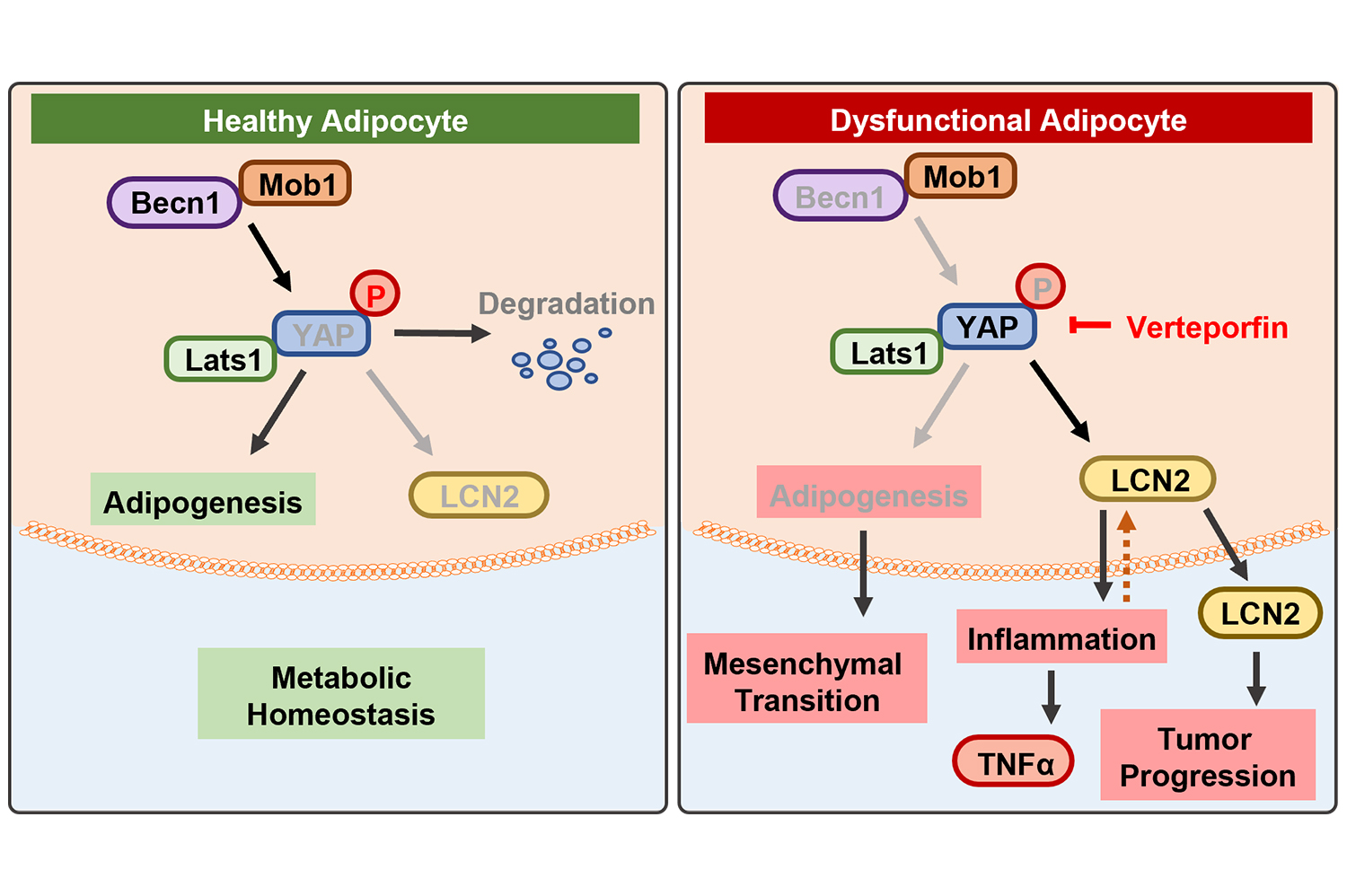Principle of Tumor Progression Induced by Adipocytes in Obesity Identified
Principle of Tumor Progression Induced by Adipocytes in Obesity Identified
Highlighting the importance of adipocytes in the tumor microenvironment
Proposing new anti-cancer targets for obese patients
The Department of Biochemistry team of Professor Han-Woong Lee (CEO of Gemcro Corp) has revealed a mechanism behind the growth of cancer, involving mast cells.
To date, it has been thought that the poor prognosis of obese patients is primarily related to metabolic disease and inflammation occurring throughout the body. However, Professor Han-Woong Lee's team noticed that many obesity-related cancers, such as breast cancer and colon cancer, develop in organs that normally have a lot of fatty tissues. This prompted their research, which found that cancer cells actually induced the transformation of neighboring adipocytes, and in turn, these transformed adipocytes transmitted signaling molecules that helped tumor progression.

[Figure 1. Schematic diagram depicting the development of cancer-associated adipocytes and their effect on cancer cell growth]
Notably, the research team pinpointed the BECN1-YAP/TAZ signal that mediates adipocyte transformation in adipose and cancer cell models. Indeed, in mice induced to become obese by a high-fat diet this signal was over-activated compared to the signal in mice with normal adipocytes. The research results demonstrated that drugs inhibiting BECN1-YAP/TAZ signaling had a significant anti-cancer effect on obese tumors. This could become a novel anti-cancer therapy that targets the specific signaling pathway and could be especially useful as an effective anti-cancer treatment for obese individuals. This study is important because it explains the association between cancer prognosis and obesity by a mechanism of adipocyte transformation.
"Therapies targeting obese patients need to be introduced sooner rather than later", says Professor Han-Woong Lee, emphasizing that "adipocyte health is an accurate indicator of cancer cell growth, more so than is the mere presence of obesity".
The study was conducted using Gemcro Corp's genetically engineered mouse technology and co-first-authored by PhD students Yaechan Song and Heeju Na under the guidance of Professor Han-Woong Lee. The study was published online May 14 in Nature Communications, a top-ranking journal in the natural sciences.
Find our more
Title of original article: Dysfunctional adipocytes promote tumor progression through YAP/TAZ-dependent cancer-associated adipocyte transformation
DOI: https://www.nature.com/articles/s41467-024-48179-3
Journal: Nature Communications
Contact corresponding author: Prof. Han-Woong Lee (hwl@yonsei.ac.kr)
Recommended Articles
Professor Myeong Min Lee
A QUIRKY twist of fate: understanding epidermis cell differentiation in plants
Professor Jihyun F. Kim
Microbial Mercenaries for Plant Disease Resistance Ungrounded